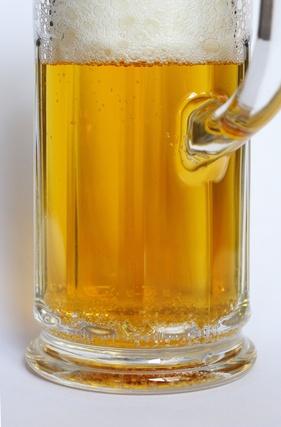Though government statistics show that drug and alcohol use among teenagers has been declining since the 1990s, it is still a problem that needs to be addressed, particularly if it’s your child abusing these drugs. Teenagers may drink alcohol, smoke cigarettes or marijuana and use other illegal drugs. It’s also possible to abuse legal drugs, such as Ritalin or over-the-counter medication. Spot the warning signs in your teen and address the situation quickly.
Significance
Statistics from the U.S. Department of Health and Human Services show that just over 70 percent of teens have ever had a drink, with around 40 percent having had an alcoholic drink within the past 30 days. Alcohol can lower inhibitions, making teens more likely to make bad choices, including having unprotected sex and driving while drunk. Illegal drug use is not as common, with only 20.8 percent of teens using marijuana within the past 30 days and less than 10 percent using other illegal drugs. These drugs also impair judgment and some–like cocaine or heroin–could kill you instantly.
Identification
Look for signs that your teen is using or abusing drugs and alcohol. One way to do this is with your nose–you should be able to tell from your child’s breath whether or not he’s been drinking or smoking. You may also notice sudden changes in your teen’s behavior, such as hiding things or not wanting to talk as often. He may be more sleepy and you may notice that his eyes are red. Disinterest in school and sudden bad grades can also be a sign that your child is using.
Considerations
Although you shouldn’t encourage it, it’s normal for teenagers to have some curiosity about drugs and alcohol. Teens may even try illegal substances. However, simply trying a beer or smoking pot once doesn’t mean the child is addicted or that she is abusing the drugs. Drug abuse comes from repeated use over time.
Prevention/Solution
Talk to your teenagers about the dangers of getting involved with drugs and alcohol, particularly at such a young age. Try to work with him to find ways to deal with peer pressure and how to say no when someone offers him a drink. Let him know that you will always give him a ride if his friend has been drinking. The more open you can be about drugs and alcohol, the less likely your teen is to try these things.
Misconceptions
A child that abuses drugs and alcohol is not a “bad kid”–she is most often someone who has problems that she is trying to escape. If you dismiss her as simply being bad, you’ll miss out on the opportunity to help her through her problems. Drug abusers need help to solve their problems and may need to go to a special treatment center to receive that help.
Photo Credit
- beer in beer-mug image by Witold Krasowski from Fotolia.com





